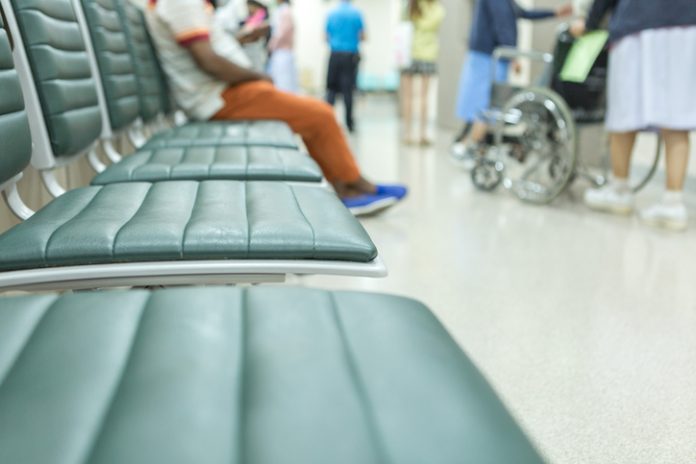Health care providers are denying care for some people who have chosen not to be vaccinated for COVID-19.
In October, UCHealth, a Colorado health care system, denied a kidney transplant to an unvaccinated woman. Leilani Lutali, 56, was in stage 5 renal failure and in line to receive a transplant from donor Jaimee Fougner. Neither Lutali nor Fougner had received COVID-19 shots.
UCHealth wrote to Lutali stating she “will be inactivated on the list for non-compliance by not receiving the COVID vaccine.”
UCHealth gave Lutali 30 days to begin the vaccination series and told her if she refused she would be removed from the transplant waiting list.
A transplant or dialysis is usually necessary for survival for a patient with stage 5 renal failure.
‘Held Hostage’
Lutali’s “choice has been taken from her,” Fougner told CBS Denver on October 7. “Her life has now been held hostage because of this mandate.”
Fougner declined the vaccine for religious reasons, and Lutali chose not to take it for medical reasons. Lutali said she checked in August and confirmed there was no mandate in place. She said she was unaware until late September that both donor and recipient were required to receive a vaccine to move forward.
“For transplant patients who contract COVID-19, the mortality rate ranges from about 20% to more than 30%,” UCHealth stated, according to CBS Denver. “This shows the extreme risk that COVID-19 poses to transplant recipients after their surgeries.”
Lutali and Fougner were unable to locate a Colorado hospital willing to perform their transplant. They are seeking care in Texas, where Gov. Gregg Abbott signed an executive order on October 11 banning private businesses from requiring vaccinations for employees or customers.
Just Saying No
Other hospitals also bar unvaccinated patients or delay their treatment.
University of Washington Medicine requires all solid organ transplant candidates to be “current on all critical vaccinations,” including COVID-19.
A Southern California woman’s kidney transplant was delayed earlier this year because her hospital, Scripps Health, considered living organ donations “non-emergent” and limited transplants to patients who need them immediately.
In August, a memo to members of the North Texas Mass Critical Care Guideline Task Force telling physicians they could consider vaccination status in care decisions was leaked to The Dallas Morning News.
“Many are understandably angry and frustrated with the unvaccinated, but triage must remain grounded upon likelihood of survival,” the memo stated. “Health care professionals should continue to honor duties of care and compassion.”
Doctors Spurning Unvaccinated
In Alabama, Dr. Jason Valentine announced he would no longer see unvaccinated patients after October 1.
“If they asked why, I told them COVID is a miserable way to die, and I can’t watch them die like that,” Valentine told The Birmingham News.
A Florida doctor announced he was limiting unvaccinated patients to virtual appointments.
Unvaccinated patients with COVID-19 may receive better care in Tennessee. In September, state health officials recommended limiting, with exceptions, monoclonal antibody treatments, which lessen the severity of COVID-19, to unvaccinated patients.
Backing Denial of Care
Physicians and hospital systems that refuse care to the unvaccinated have cover from the American Hospital Association.
“During an emergency situation or if the patient is in labor, the Emergency Medical Treatment and Labor Act (EMTALA) requires hospitals to stabilize and initiate treatment,” the AHA stated, The Memphis Commercial Appeal reported on August 25. “If a patient is in need of non-emergency surgery or other care that might leave the patient with a weakened immune system or the inability to mount a strong response to the vaccination, doctors may want to delay services long enough for the patient to get vaccinated so that they are as safe as possible.”
The ethical code of the American Medical Association (AMA) contradicts that advice, stating, “a physician should not refuse a patient simply because the individual is not vaccinated or declines to be vaccinated.”
Although the AMA provides some “wiggle room” to deny care to protect others, physicians are required to help patients whenever possible, says Marilyn Singleton, M.D., J.D., a board-certified anesthesiologist and past president of the Association of American Physicians and Surgeons.
“When all is said and done, physicians must remember the oath of Hippocrates, that standard of medical ethics,” said Singleton. “All of a physician’s actions must be for the ‘benefit of the sick’ or to do no harm. We have already seen [denial] of so-called elective procedures and physician office visits do harm to patients. Oncologists report that cancer screenings for breast, colon, and prostate cancer sharply declined, as much as 90 percent, during the first year of the pandemic.”
Market for Transplants?
Allowing people to come to private agreements about transplants would help solve these problems, says Jeffrey Singer, M.D., a senior fellow at the Cato Institute.
“Because we don’t have a market system for organ transplants, we end up with shortages of organs and centrally planned rationing,” said Singer. “People who need liver transplants, for instance, are denied them if they continue to drink alcohol or use IV drugs, particularly if their cirrhosis is due to hepatitis C from IV drug use or due to alcoholism.
“So one can certainly make a case for denying transplants to people who are going to be on immunosuppressants for life and are refusing to immunize themselves against a virus that has a 20 percent fatality rate for them. The solution is to allow people to sell their organs in the marketplace and work out their own terms with consumers.”
Singer said denying care to the unvaccinated is unacceptable in other cases, “just like I can’t condone refusing medical care to people doing harm to themselves by making other unhealthy lifestyle choices, such as tobacco smoking, drinking too much alcohol, and eating the wrong foods.”
Harry Painter (harry@harrypainter.com), (@TheHarryPainter) writes from Tulsa, Oklahoma.





















